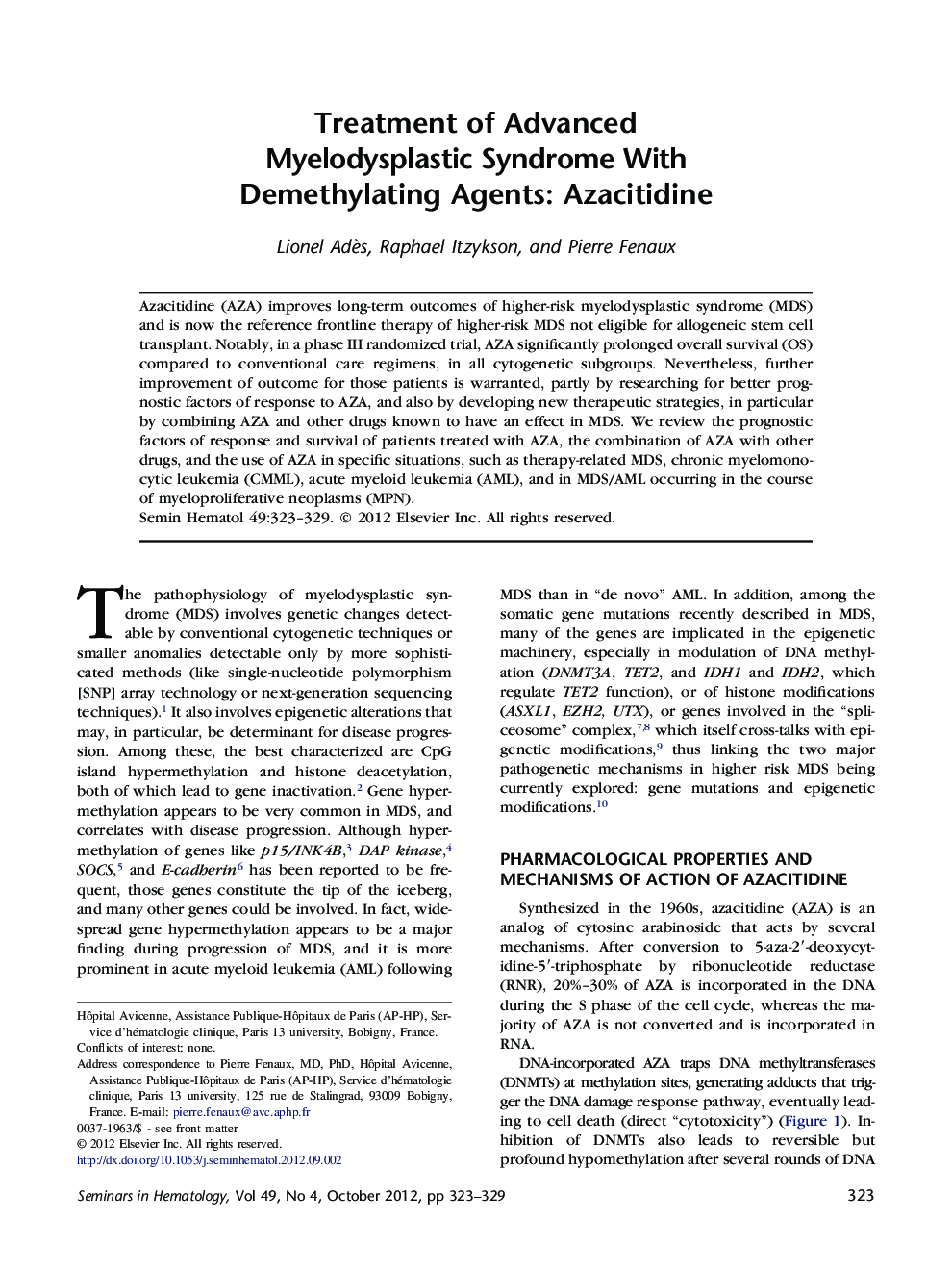| Article ID | Journal | Published Year | Pages | File Type |
|---|---|---|---|---|
| 3333724 | Seminars in Hematology | 2012 | 7 Pages |
Azacitidine (AZA) improves long-term outcomes of higher-risk myelodysplastic syndrome (MDS) and is now the reference frontline therapy of higher-risk MDS not eligible for allogeneic stem cell transplant. Notably, in a phase III randomized trial, AZA significantly prolonged overall survival (OS) compared to conventional care regimens, in all cytogenetic subgroups. Nevertheless, further improvement of outcome for those patients is warranted, partly by researching for better prognostic factors of response to AZA, and also by developing new therapeutic strategies, in particular by combining AZA and other drugs known to have an effect in MDS. We review the prognostic factors of response and survival of patients treated with AZA, the combination of AZA with other drugs, and the use of AZA in specific situations, such as therapy-related MDS, chronic myelomonocytic leukemia (CMML), acute myeloid leukemia (AML), and in MDS/AML occurring in the course of myeloproliferative neoplasms (MPN).
